The Fatih district in central Istanbul is home to three historic residential neighbourhoods of Fener, Balat, and Ayvansaray. This area has been inhabited by a diminishing non-Muslim community for hundreds of years. These neighbourhoods’ historical importance stems from Jewish, Greek, and Armenian influences. Let’s learn a bit more about each of them. Fener (Phanar), meaning ‘lantern’ or ‘lighthouse’ in Greek, refers to the old lighthouse quarter along the Golden Horn from the Byzantine and Ottoman periods. There are various historic churches, mosques, and houses in Fener. The patriarchate is still located there, so the area is an important centre for the Orthodox Church. Balat, the neighbourhood adjacent to Fener, is as old as Istanbul’s history. Its name is derived from the Greek word palation, meaning ‘palace’. The Jewish community of Istanbul has lived in Balat since the 15th century. The area's architectural monuments, churches, synagogues, public baths, and markets preserve their rich historic quality today. Ayvansaray neighbourhood is part of the walled city. The name Ayvansaray is from Persian and means ‘Veranda Palace’. This area is where Istanbul began to develop, so it can be considered the city's birthplace.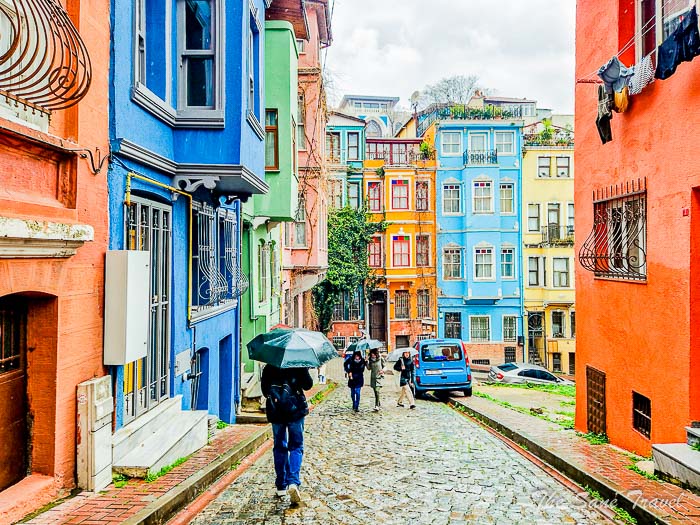
The European Union granted seven million euros to Turkey for the restoration of this area, with the work starting at the beginning of the 21st century. Today, renovated colourful buildings, attractive cafes, and historic monuments attract many visitors. With its colourful ancient buildings and tiny alleys, you will forget you are in Turkey when you enter this area. So follow my self-guided walking tour to explore these neighbourhoods and stop by cafes and local landmarks while you are there. 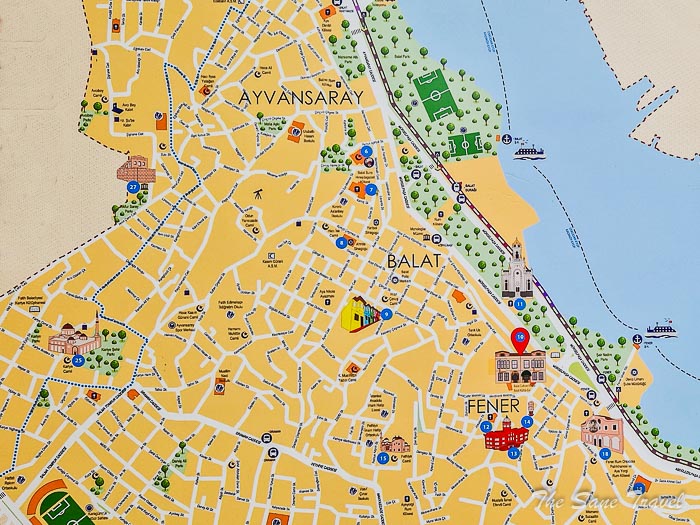 Let’s begin with the St. Stephen Church.
Let’s begin with the St. Stephen Church.
St. Stephen Orthodox Church
The St. Stephen Church, or Iron Church, is a legacy of the Bulgarian minorities from the Ottoman period. The current church was built by the famous Armenian architect Hovsep Aznavur in 1898. The architecture of this cross-shaped church includes Neo-Gothic and Neo-Baroque elements. Its supporting frame is made entirely of steel, while the outer facade consists of cast iron. The 40-metre-high belfry has six bells. After restoration work, the church was reopened in 2018.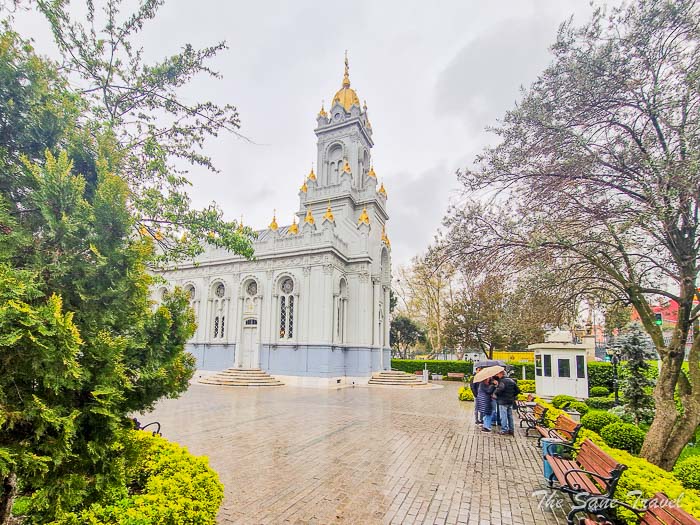
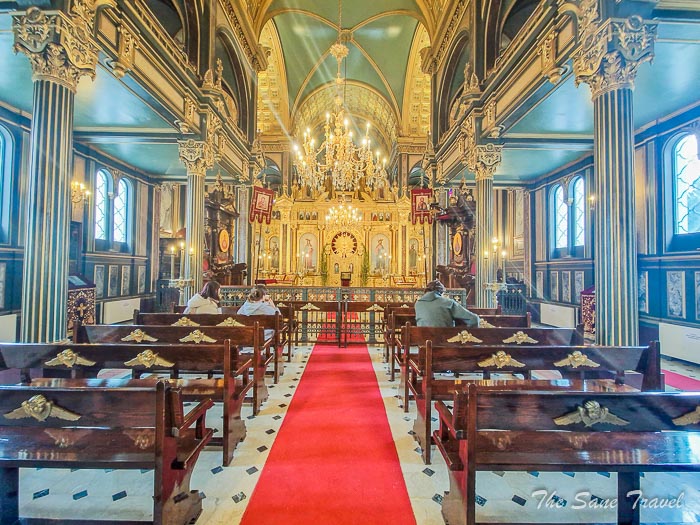
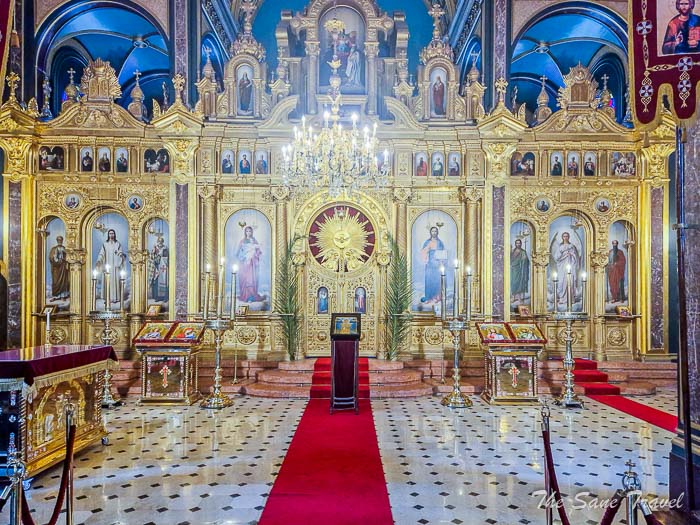
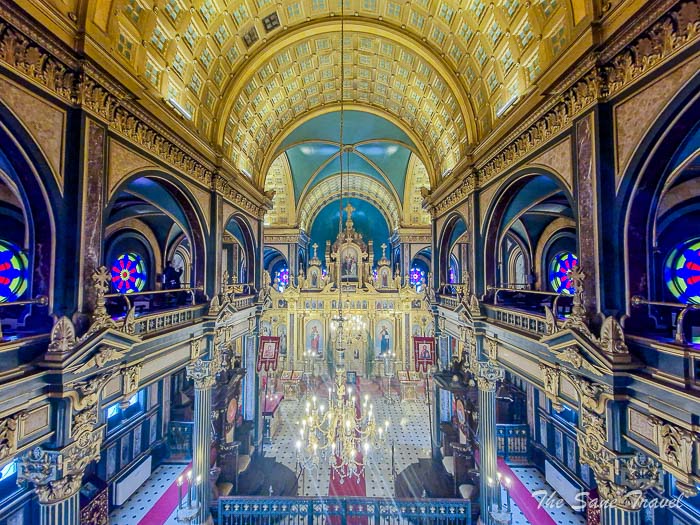
Address: Balat, Mürselpaşa Cd.
Continue your way to the Church of St. George.
Patriarchal Church of St. George
The Church of St. George, the seat of the Patriarch of Constantinople, is the most senior office of the Greek Orthodox Church. During the Byzantine Empire, the seat of the Ecumenical Patriarchate of Constantinople was Hagia Sophia. After the Ottoman conquest in the middle of the 15th century and the conversion of the Hagia Sophia into a mosque, the seat of the Patriarchal Church changed several times before being finally moved to the Church of St. George in 1590. The Ecumenical Patriarchate of Constantinople, once the leader of the Eastern Church, still retains this honorary title today. For this reason, while St. Peter’s Basilica is significant for Catholics, St. George’s Church is equally meaningful for Orthodox believers.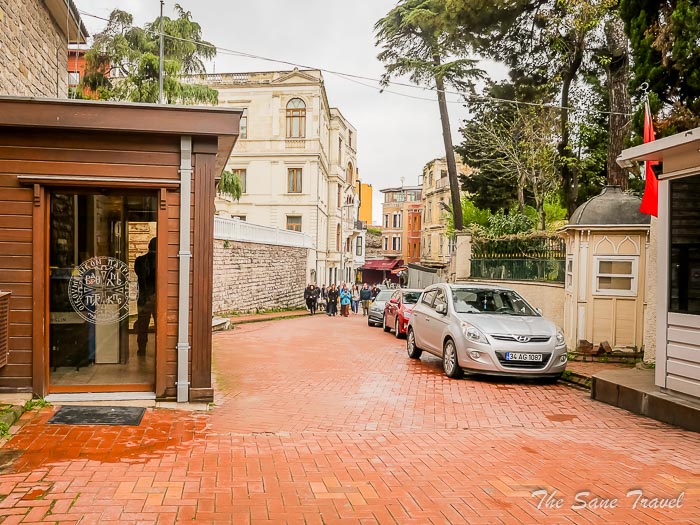
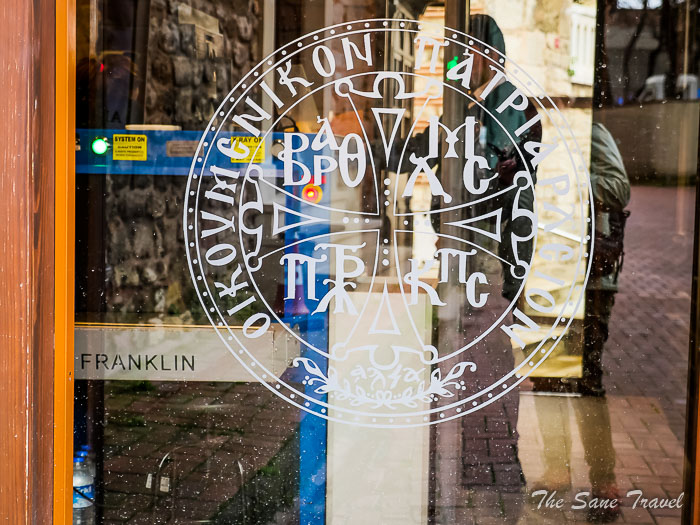
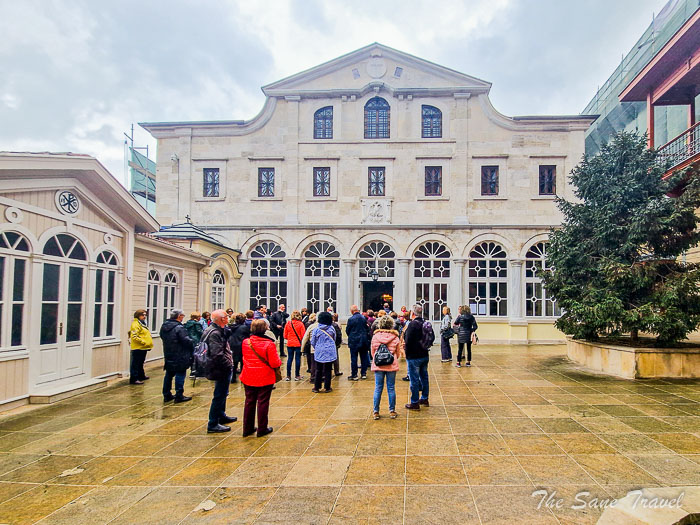
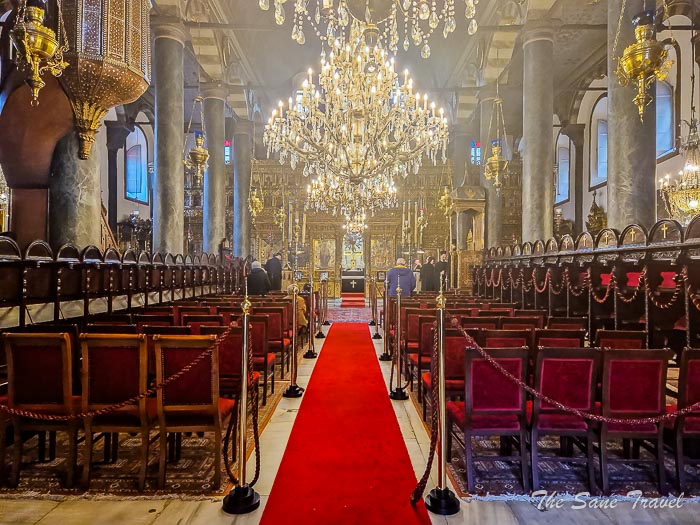
Address: Yavuz Sultan Selim, Dr. Sadık Ahmet Cd. No: 19.
Continue your walk on Yıldırım Street and admire colourful buildings, cafes, and murals.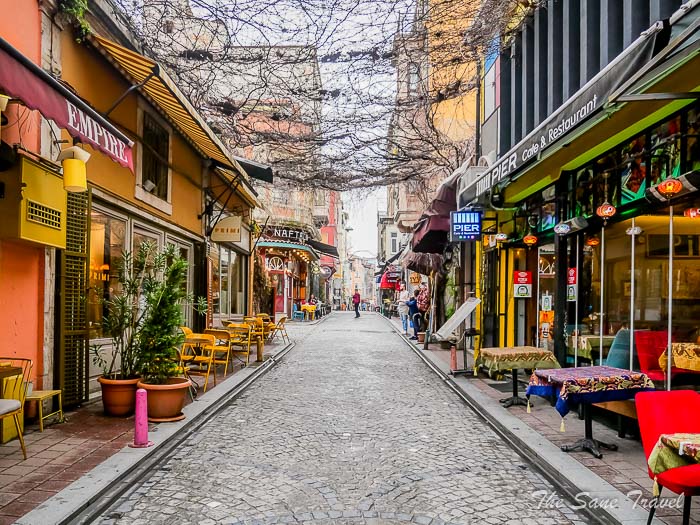
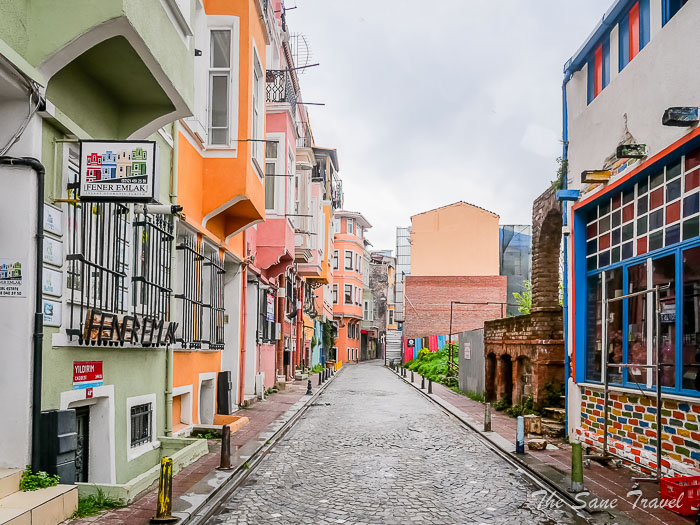
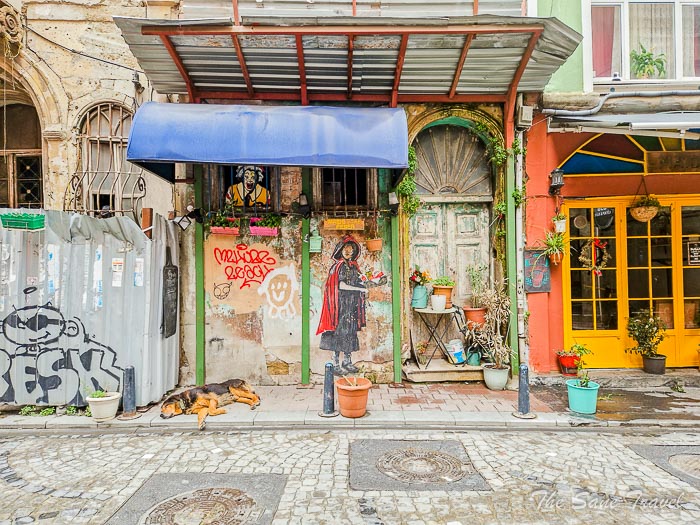
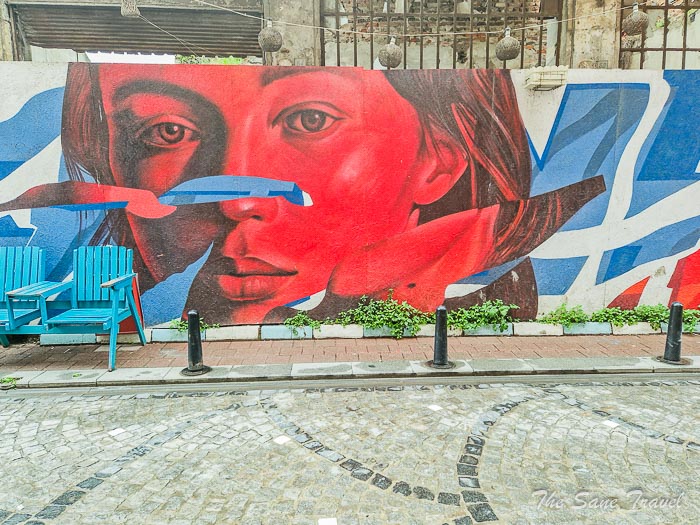 Stop at Minik Kalpler Balat.
Stop at Minik Kalpler Balat.
Minik Kalpler Balat
A building on Yıldırım Street with toys hanging from the windows was set up for both local and migrant children. The building owners distribute free soup for the little ones all day long. You can donate toys and clothes there. It is not an association, a private enterprise, or an orphanage, just a house with mother Maryana and father Ryza and many children.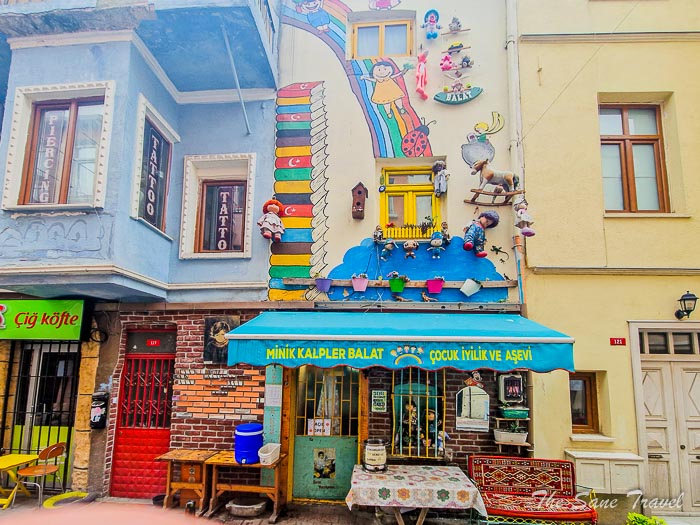
Address: Yıldırım Cd. No 119.
After a while, turn left onto Ayan Street and look for the Falan Filan Mezat building.
Falan Filan Mezat
Balat has been a trading post for antiques since the Ottoman period. On Friday, Saturday and Sunday evenings, the Falan Filan Mezat cafe and auction house is a great place to watch antique auctions. Even if you are not interested in antiques, this building will catch your attention with its colourful murals.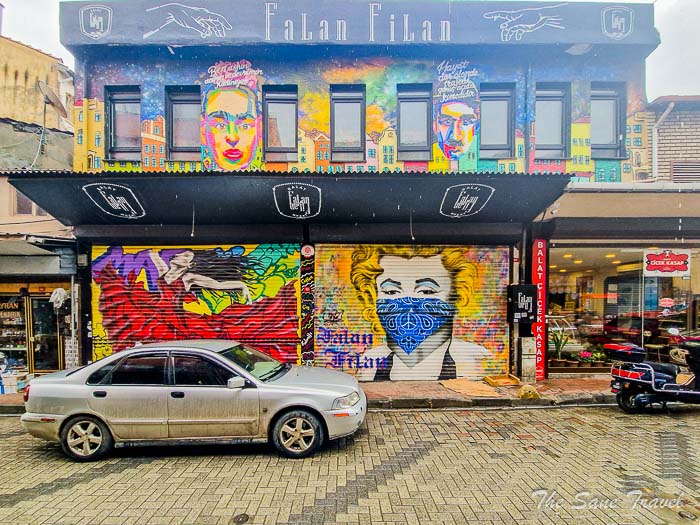
Address: Ayan Cd. No 82.
Then follow the route on my map until you reach Tekfur Palace.
Tekfur Palace
Tekfur Palace (Palace of Porphyrogenitus) was built – probably in the late 13th century – as an annexe to Blachernae Palace. This thick-walled palace, built adjacent to the land walls, is named after the 10th-century emperor Constantine VII Porphyrogenitus. In the 18th century, a ceramic tile workshop was established there, which run until the mid-19th century when the palace was abandoned. Ceramic tiles produced in the Tekfur Palace workshop can be seen at Hekimoğlu Ali Paşa Mosque in Istanbul. The monumental three-storey façade of the palace and most of its walls are still standing thanks to repairs done in the second part of the 20th century. In addition, a new restoration project was started in 2010 and is still ongoing. 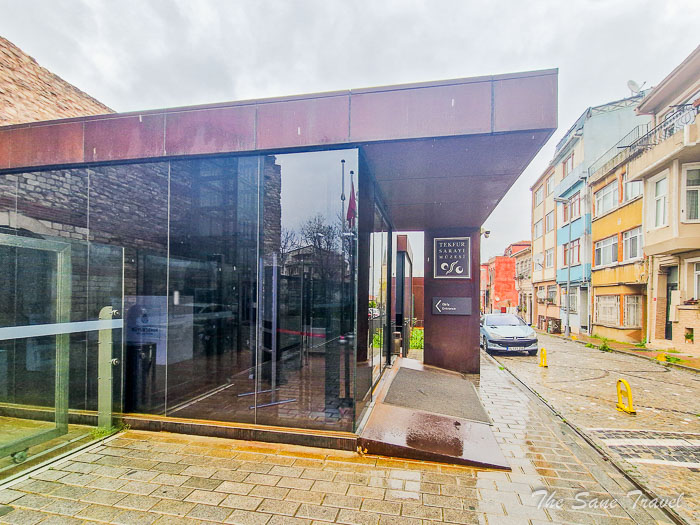
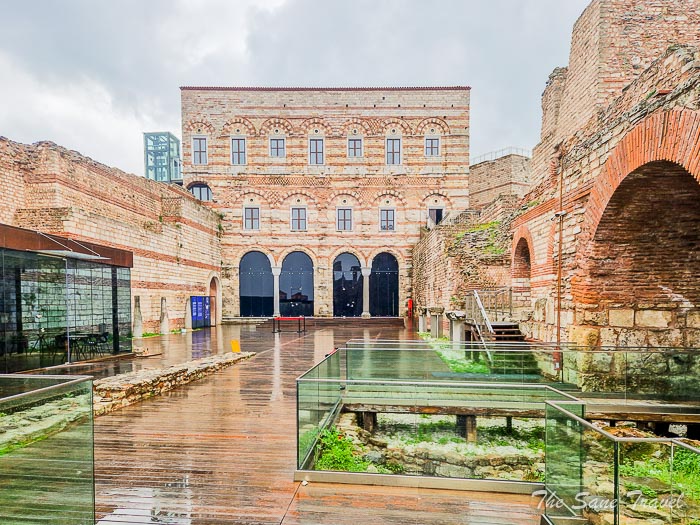
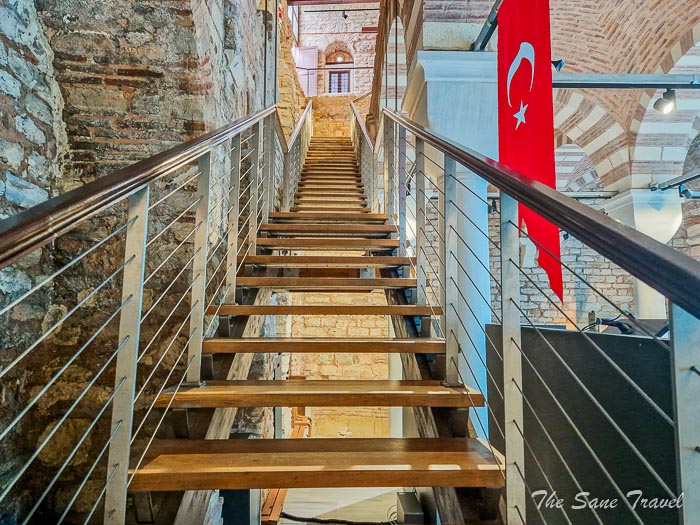
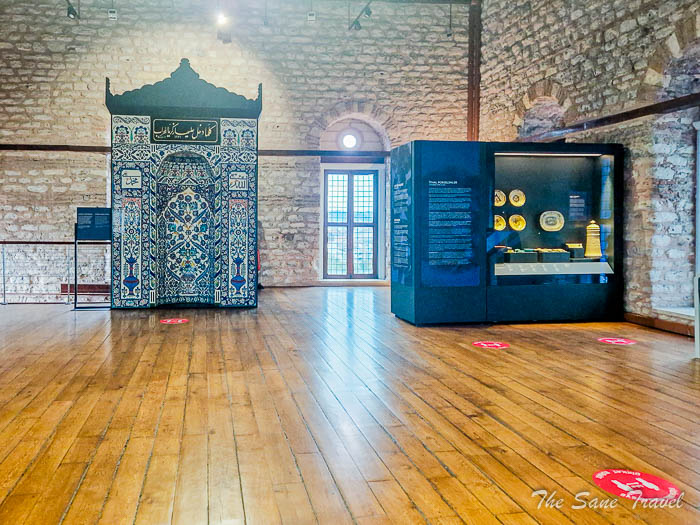 The roof, rebuilt during the restoration, is covered with Turkish ceramic tiles. Get up to the roof of the building to admire stunning views of Istanbul and the Golden Horn.
The roof, rebuilt during the restoration, is covered with Turkish ceramic tiles. Get up to the roof of the building to admire stunning views of Istanbul and the Golden Horn.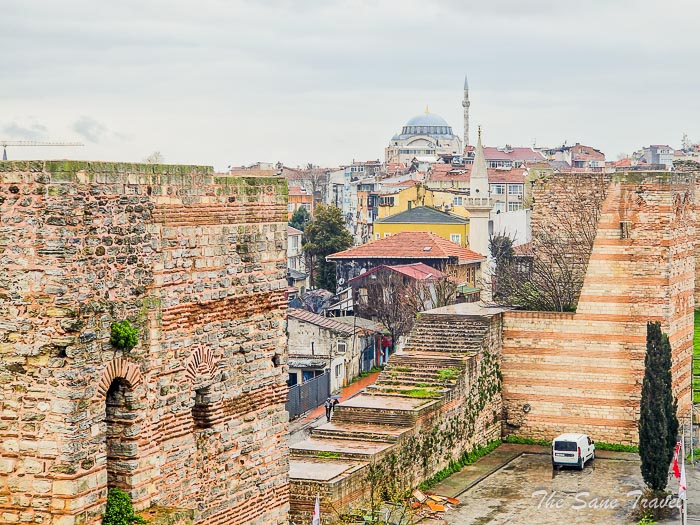
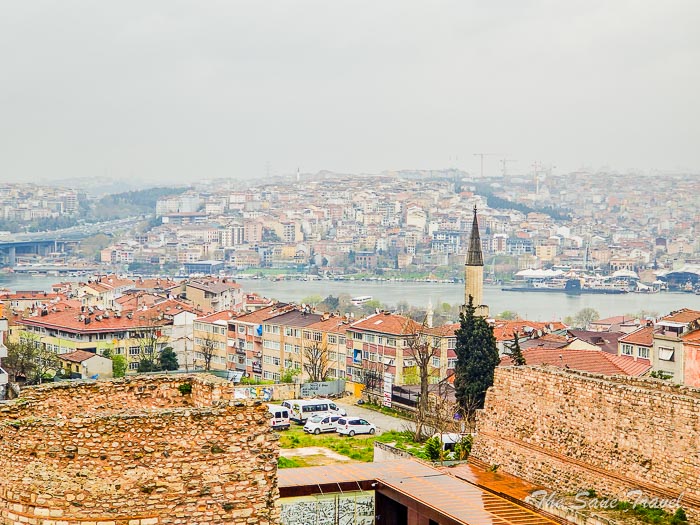
After visiting the palace, take Hoca Cakir Street next to the Theodosian Walls.
Theodosian Walls of Constantinople
The Theodosian Walls were built in the 5th century and were considered impenetrable. The double walls protected the city from various sieges; however, they were finally breached by the Ottoman Sultan Fatih the Conqueror in 1453. The Ottomans fixed and maintained the walls and extended them as the city grew. Today, about five kilometres of the Theodosian Walls are still standing.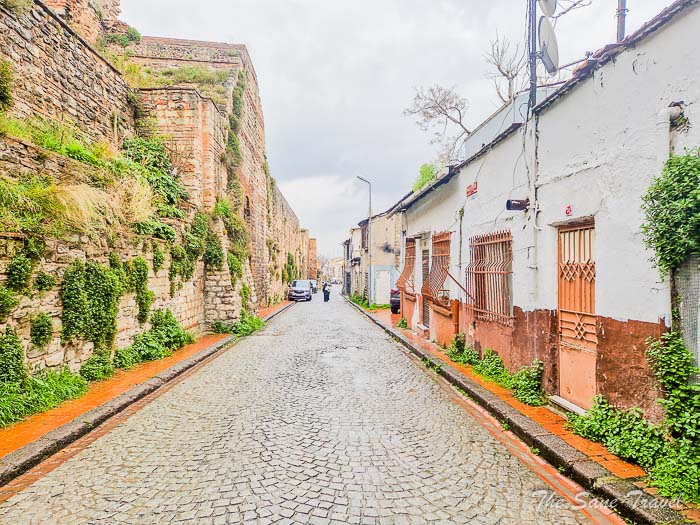
Address: Dervişali, Hoca Çakır Cd. No: 1.
Before the end of the street, take a left to Kariye Bostani Street, and after a while, turn left again to Seyh Eyup Street and walk until you reach Chora Mosque.
Chora Mosque
The Chora Mosque (Kariye Camii) is renowned worldwide for its well-preserved mosaics and frescoes. It presents beautiful examples of paintings from the last period of East Rome. The name kariye originated from the ancient Greek word khora, which means countryside because the old church and monastery remained outside the walls of Constantinople. The mosque was rebuilt in the 14th century. In subsequent centuries, it became a mosque, a museum, and a mosque again. The building was closed during my visit, with no information as to when it will be open to visitors again.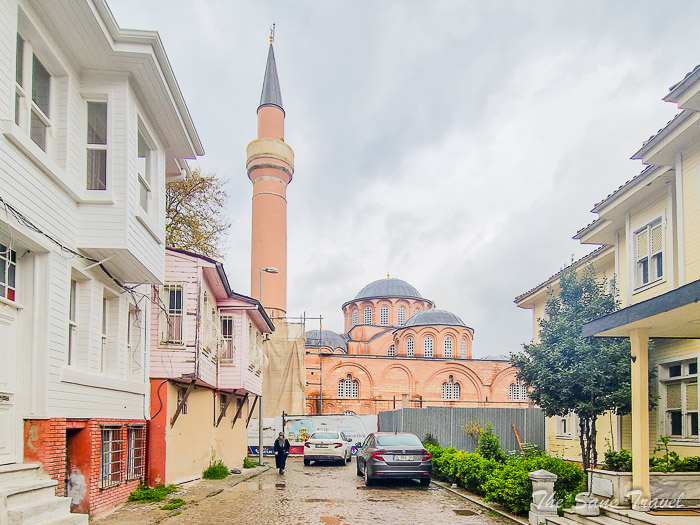 Then make your way through winding streets to Merdivleni Yokusu.
Then make your way through winding streets to Merdivleni Yokusu.
Merdivenli Yokuşu
Merdivenli Yokuşu is a steep street with mansions of former Greek aristocrats. In the 17th and 18th centuries, Greek aristocratic families built splendid mansions in the patriarchate vicinity and along the coast.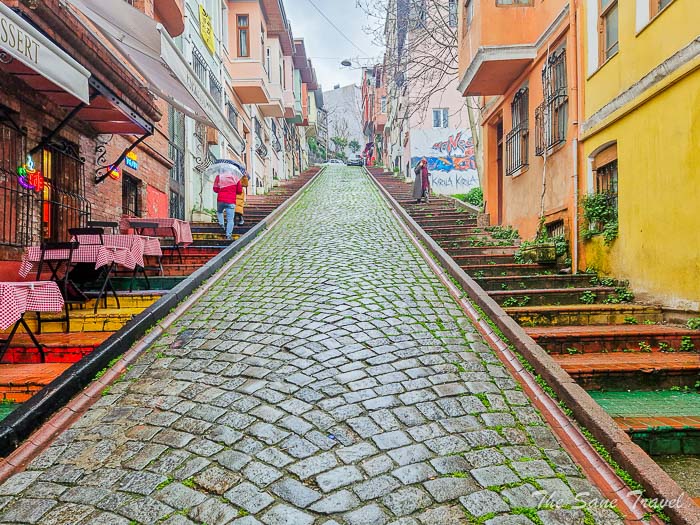
Then head to Kiremit Street to take one of the most instagrammable pictures of this area.
Colourful Houses of Balat
Houses on Kiremit Street are one of Istanbul's most photographed attractions. This street with houses painted in pastel colours is such a peaceful and pleasant place away from the hustle and bustle of the city. By the way, one of the houses is rented out through Airbnb, so you can stay there longer if you wish.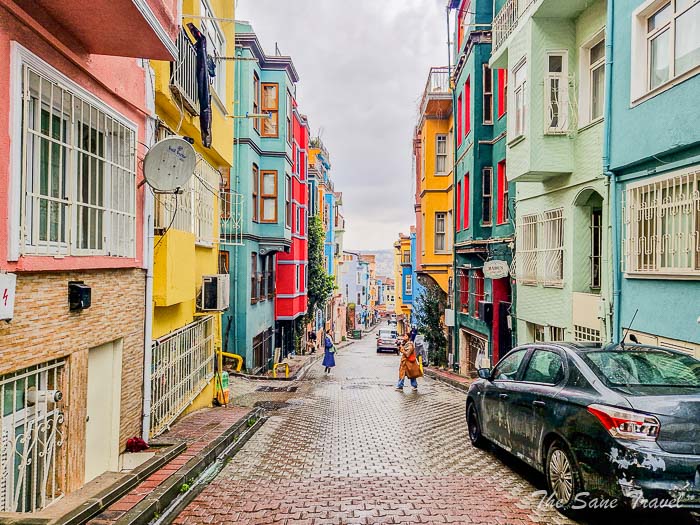
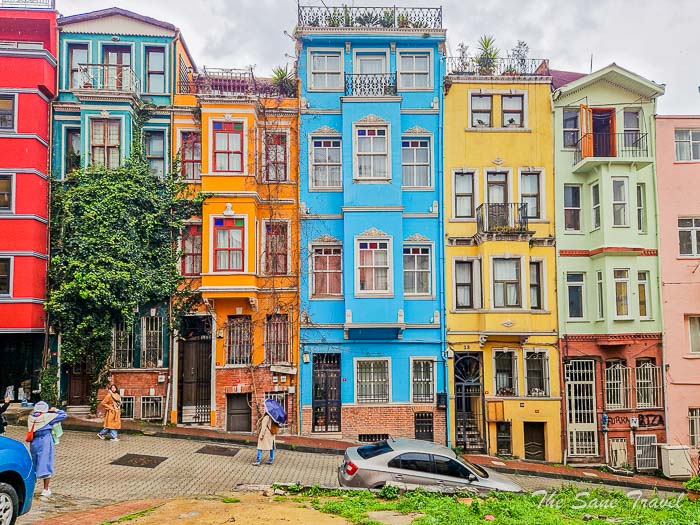
Address: Kiremit Cd. No: 34.
Your next stop is Private Fener Greek High School.
Private Fener Greek High School
Private Fener Greek High School is what is left of the former Greek Patriarchal Academia. Established in the mid-15th century, the school is a learning centre that teaches the Greek language, ancient philosophy and history, and the Orthodox religion. Throughout its history, the school has changed many buildings. The current building was built in the early 1880s and designed by the Ottoman Greek architect Konstantinos Dimadis. Despite its function as a school, the building is often referred to as ‘the 5th largest castle in Europe’ because of its castle-like shape. Currently, some 50 pupils study there.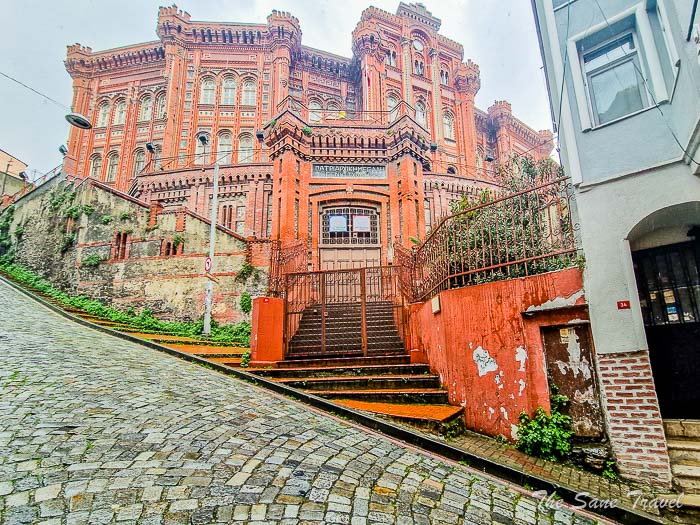
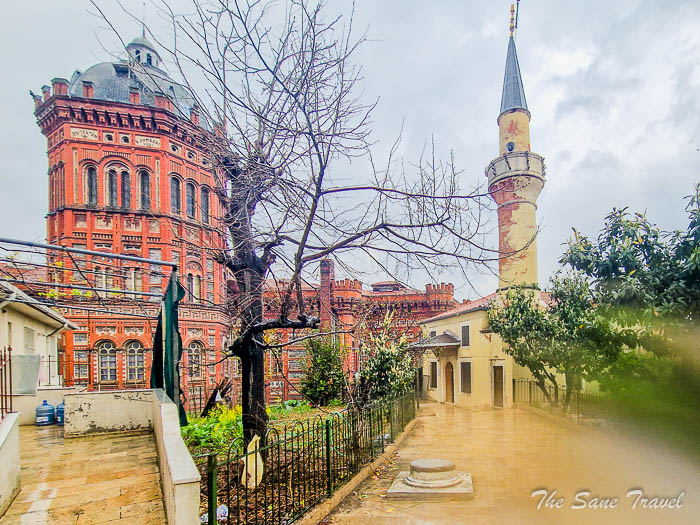
Address: Sancaktar Ykş. No: 36.
Then take a short walk downhill to reach the colourful stairs and Incir Ağacı Kahvesi.
Incir Agaci Kahvesi
İncir Ağacı Kahvesi is one of the most popular cafes in Balat. The place is so much more than just a cafe. This techno-coloured cafe, hands down, is a reason alone to visit Balat. It is a place where locals and visitors come to enjoy the artistic decorations and gorgeous outdoor space. This umbrella-covered cafe with a staircase next to it features many different colours and patterns.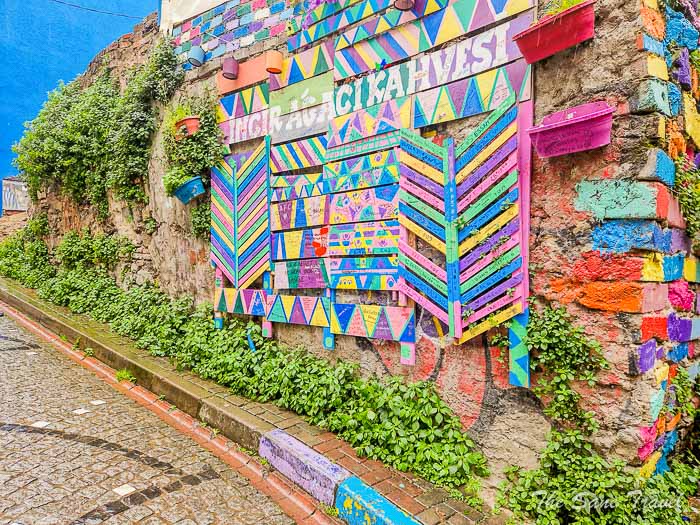
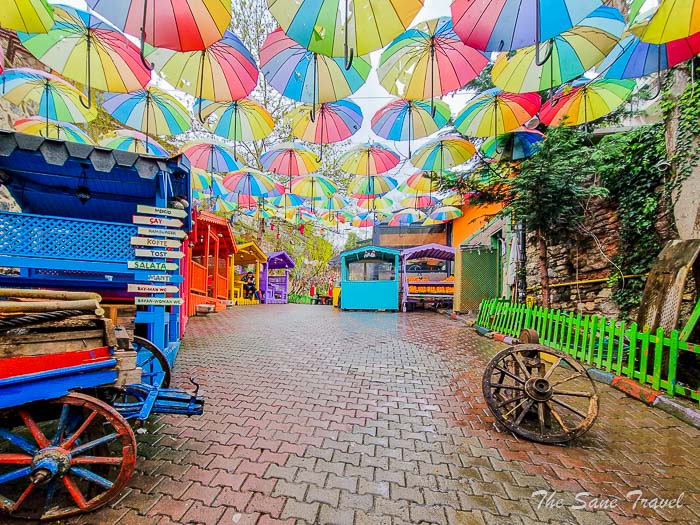
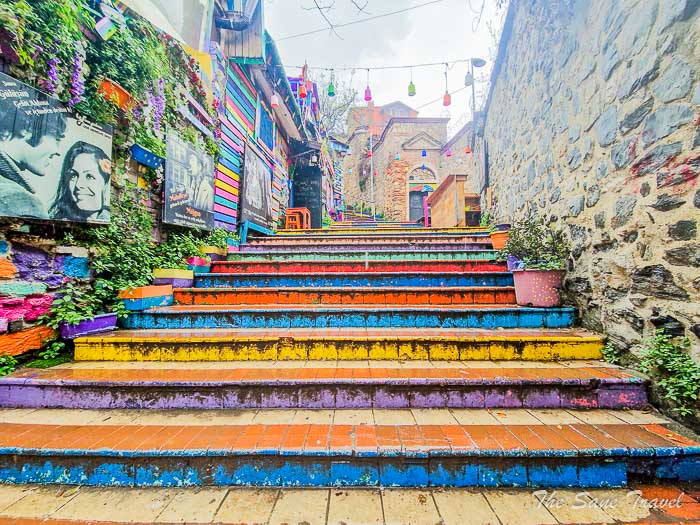
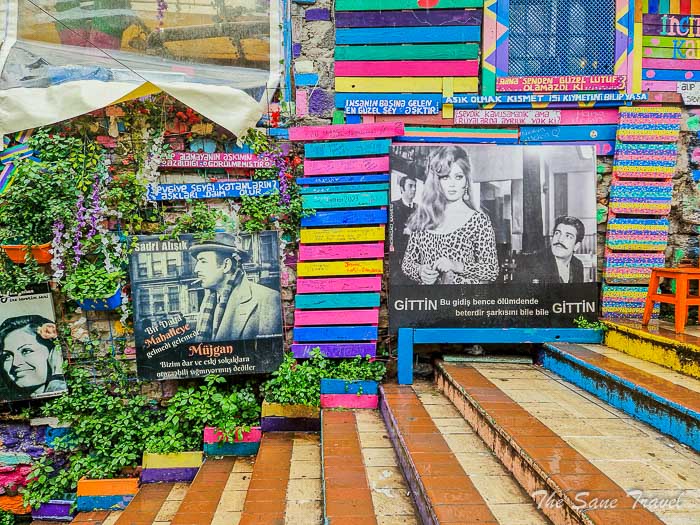
Address: Merdivenli Mektep Sk. No: 1.
Practical information
To get to the starting point of your tour, take tram 5 or buses 32T, 33ES, 35D, and 36CE to the Fener stop. The walk involves climbing stairs and strolling cobblestone streets, so wear comfortable shoes. Take a camera or a phone with a good camera as you will have many photo ops. Allocate enough time, at least half a day, to fully enjoy what this area has to offer. Also, Vodina Street, parallel to Yıldırım Street, was not mentioned before, but it is worth visiting.
Like it? Pin it!
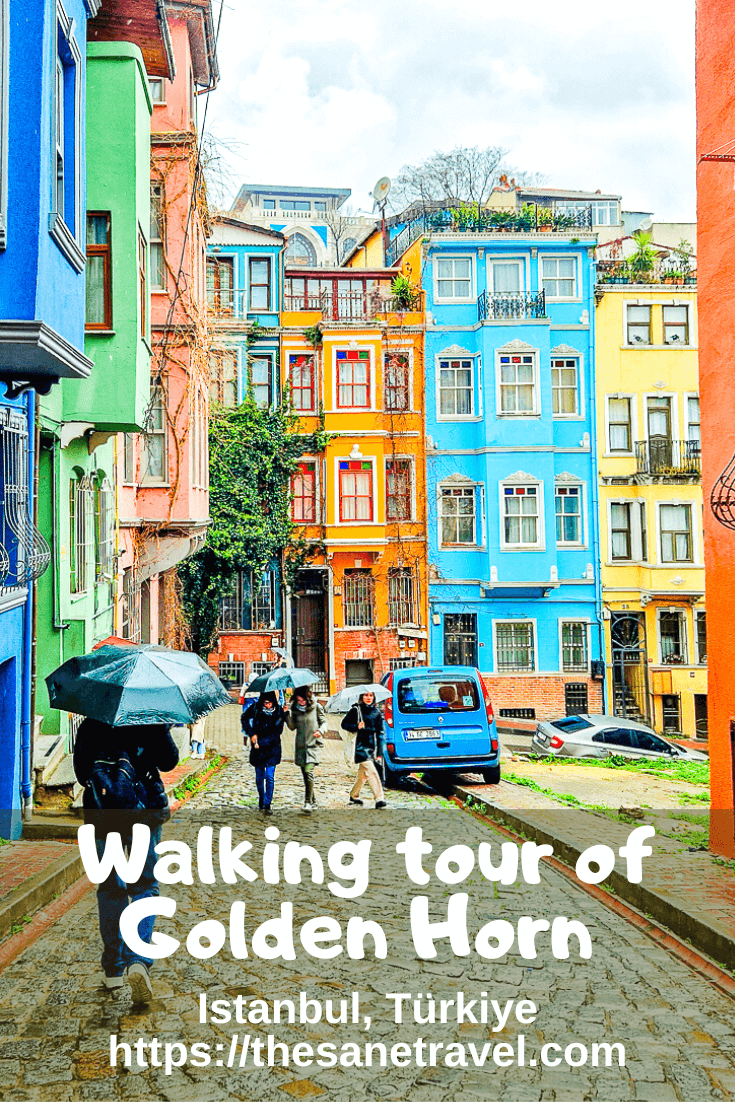
What did you think? Have you visited Istanbul? I would love to hear from you, so please add your comment below.
Author: Anita Sane
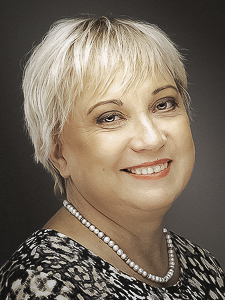
About the author
Anita is a part-time traveller, passionate photographer and a retired career woman from Latvia, travelling mostly solo for more than 15 years. She is a skilled travel planner who plans and executes her travels by herself. Anita wants to show you how to travel the world and open your mind to new experiences. Follow her on Facebook, Instagram, Pinterest, Twitter and Bloglovin.

Report
My comments